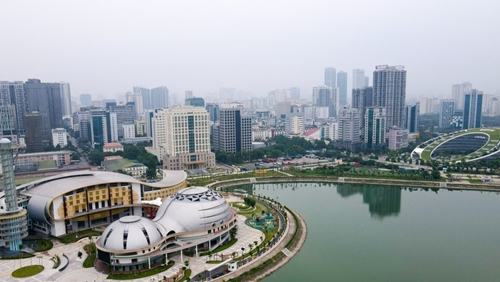Last year, the country’s GDP expanded 7.1%, above the Government’s 6.5% target, backed by accommodating monetary policy and strong retail sales. Recent data, however, indicated the potential of a slowdown, particularly in the real estate sector, which is facing challenges despite early signs of recovery.
    |
 |
|
A corner of Hanoi (Photo: toquoc.vn) |
Inflation in January was 3.6% year-on-year, marking the sixth consecutive month below 4%. The General Statistics Office attributed this primarily to increased transportation and food prices during the lunar New Year period.
Standard Chartered experts warned of potential intensifying inflationary pressures in the year, given expected price rises in health care, housing, building materials and food. The State Bank of Vietnam may face challenges if inflation rises in Q2, potentially complicating economic recovery efforts.
The bank’s report stated that Vietnam maintained a large trade surplus with the US which could be under close scrutiny under the new situation. However, certain risks persist, comprising decrease in the monthly trade surplus and the relocation of global production to Vietnam which could raise concerns about overcapacity and pricing pressures.
Regarding the foreign exchange rate, the VND is being closely controlled, the experts said, suggesting the central bank to enhance foreign exchange reserves to prevent excessive VND appreciation.
Meanwhile, tourism is anticipated to be a key growth driver, boosted by increasing international arrivals and the return of Chinese tourists.
Standard Chartered predicted credit growth at 16% for 2025, following a 15.1% increase in 2024, though lending remains cautious.
Tim Leelahaphan, senior economist for Vietnam and Thailand at Standard Chartered, emphasised the Government's focus on stronger economic growth, which could result in low interest rates in the short term. However, he forecast rates will normalise by Q2, with the State Bank expected to implement a 50-basis-point increase.
The central bank's monetary policy will play a key role in maintaining economic stability and growth in 2025, he stressed, adding Vietnam's sustainable growth depends on economic diversification and improved natural disaster resilience.
Source: VNA